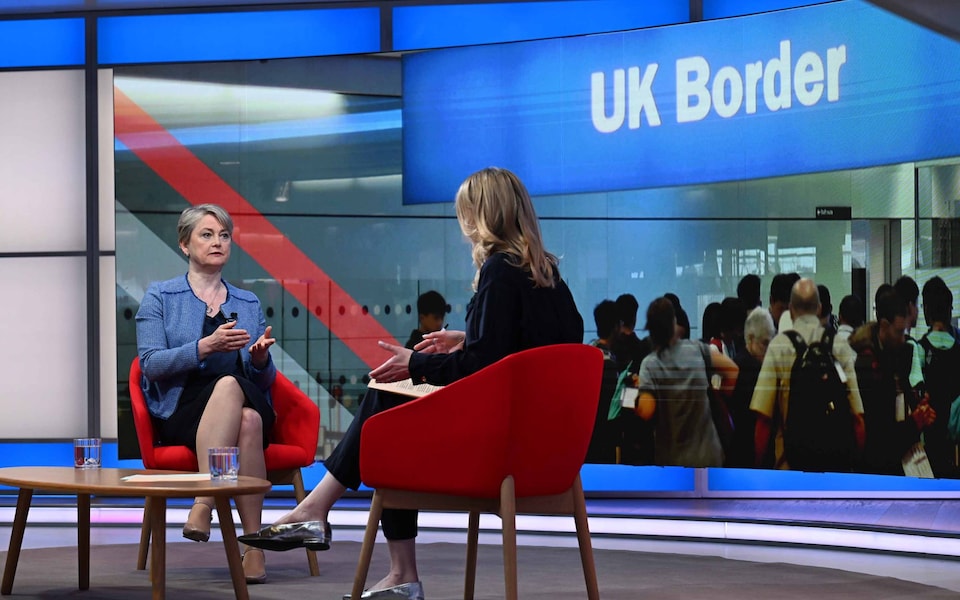Foreign students face deportation if they fail to secure graduate-level roles, and migrants to the United Kingdom may soon face a 10-year wait before becoming eligible for citizenship—unless they can demonstrate a “real and lasting contribution” to British society and the economy—under sweeping immigration reforms to be unveiled by Prime Minister Sir Keir Starmer. In a long-anticipated white paper on immigration, the Labour government is set to overhaul a decades-old framework that previously allowed migrants to apply for indefinite leave to remain—and ultimately, citizenship—after five years of residency. The new proposal seeks to extend this timeline to 10 years, unless applicants can clearly prove their societal or economic value.
Contribution-Based Path to Residency
The government will prioritize applicants with verified contributions, such as sustained tax payments, service in the National Health Service (NHS) or other public sectors, or documented outstanding voluntary service. Those who qualify will still be allowed to apply before the 10-year threshold. Indefinite leave to remain grants access to a wide range of civic rights — from voting and passport eligibility to welfare benefits and full access to public healthcare. Officials say the tougher policy mirrors systems seen in Denmark and aims to promote integration and good citizenship.
The reforms are part of Labour’s broader plan to “substantially” reduce net migration, which reached 728,000 in the year to June 2024. The move comes amid political pressure from the right-wing Reform UK party, which dealt Labour a blow in recent local elections with its strong anti-immigration stance.
The Conservative opposition has criticized Labour for failing to impose a migration cap and plans to table a vote on such a cap in Parliament.
The reforms also propose stricter English language requirements for skilled visa applicants, raising the bar to the equivalent of A-level fluency — a B2 level — for work, study, and permanent residency applications. Dependents of visa holders will now need to pass A1-level English tests, with further progress required for visa renewals.
Foreign students and graduates will face heightened scrutiny. Those who cannot secure graduate-level employment post-study may be required to leave the UK, a move designed to close what critics say is a backdoor to permanent residency.
Read More:
UK Immigration: New policy to blocks citizenship for refugees who made ‘dangerous journeys’
UK foreign workers face a 10-year wait for settled status
UK Immigration: Foreign workers may face 15 year wait for citizenship
Crackdown on Overseas Care Workers
Home Secretary Yvette Cooper announced that foreign recruitment in the social care sector will be restricted. From later this year, care homes will no longer be allowed t o sponsor visas for overseas staff. Instead, they will be expected to hire from wit hin the UK — including from the pool of 40,000 current foreign care workers whose sponsorships were recently cancelled.
“This is about prioritizing local workers and addressing longstanding issues in the care sector with fair wages and proper investment,” Cooper said. However, industry groups, such as Care England, warned that the sudden halt to international hiring could further cripple a fragile sector already suffering from chronic vacancies and underfunding.
In a significant tightening of enforcement, any offence committed by a foreign national — not just those leading to imprisonment — will now be reported to the Home Office. This change could lead to deportation proceedings for lower-level offences, reflecting an aggressive new approach to immigration violations. Foreign nationals with unreported criminal histories abroad, or who commit crimes while in the UK, may also face removal under the new regulations.
Skilled Worker Requirements and Exceptions
While the minimum qualification threshold for skilled migrants is being restored to degree level, exemptions will remain in place for industries deemed critical to the UK economy — such as IT, construction, and engineering. Employers must still prove they are investing in local talent before hiring from overseas, with new oversight mechanisms to enforce compliance.
Despite pressure from the opposition, the government has declined to set a numerical target for reducing migration. Cooper said fixed targets had previously “undermined credibility” and Labour would instead focus on structural reforms to ensure the system is “controlled, selective, and fair.”
The Tories have slammed Labour’s approach as reactive, accusing Starmer of flip-flopping on key immigration issues. Shadow Home Secretary Chris Philp claimed the current visa reductions were the result of Conservative policies implemented in April 2024 — not Labour’s new vision.
“Starmer is trying to take credit for results he opposed just weeks ago,” Philp said. “He talks tough but voted against residency and contribution tests, and he remains silent on deporting foreign criminals.”
As the UK prepares to debate one of its most significant immigration overhauls in decades, critics and supporters alike agree on one thing: the impact will be far-reaching for families, employers, and communities across Britain — and beyond.



